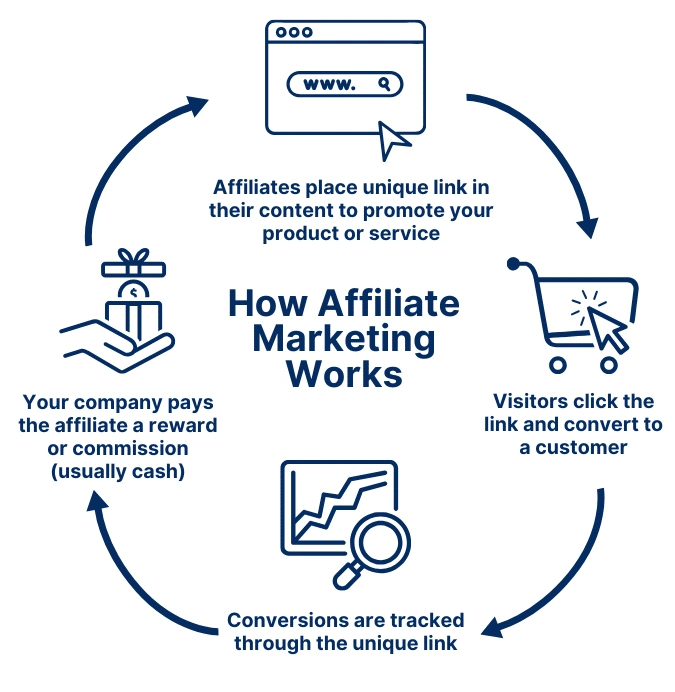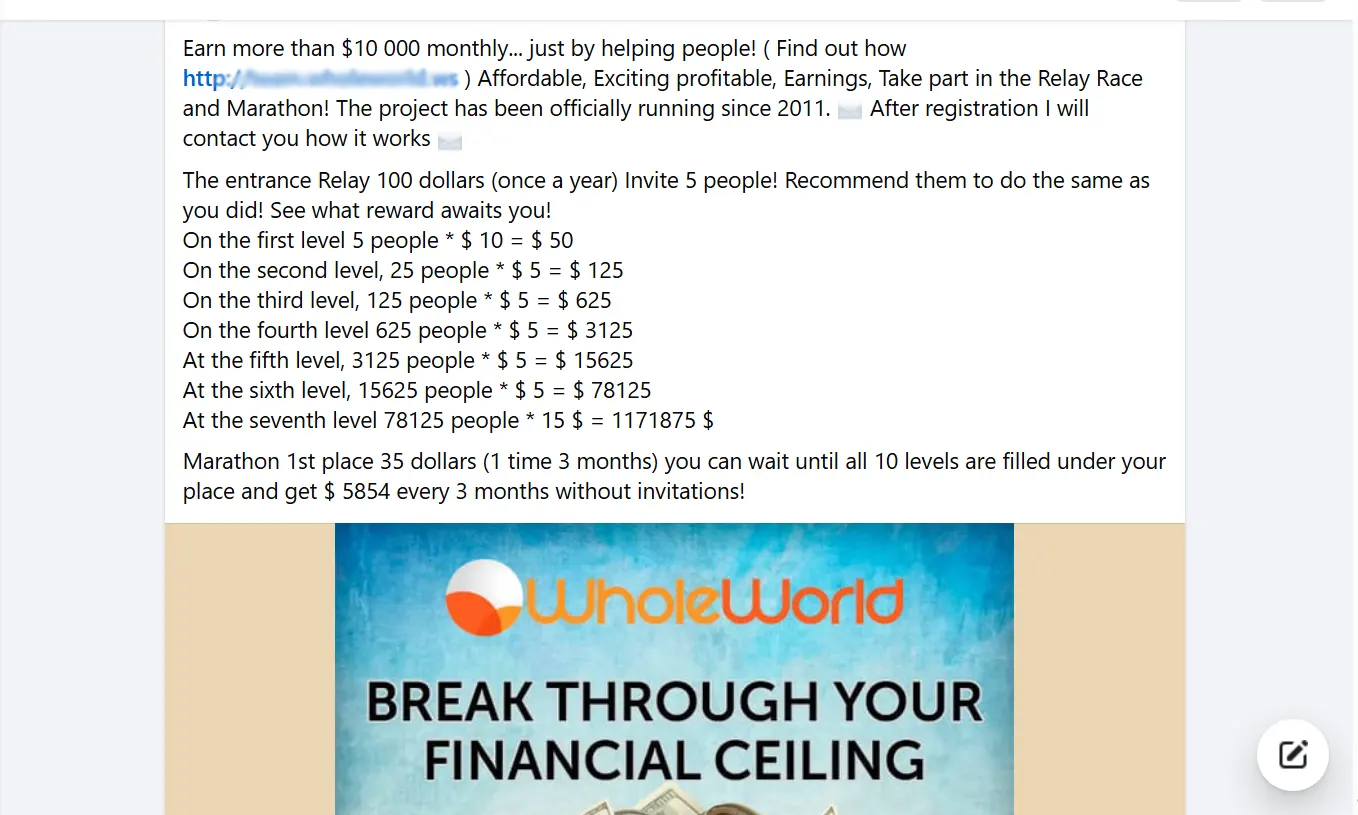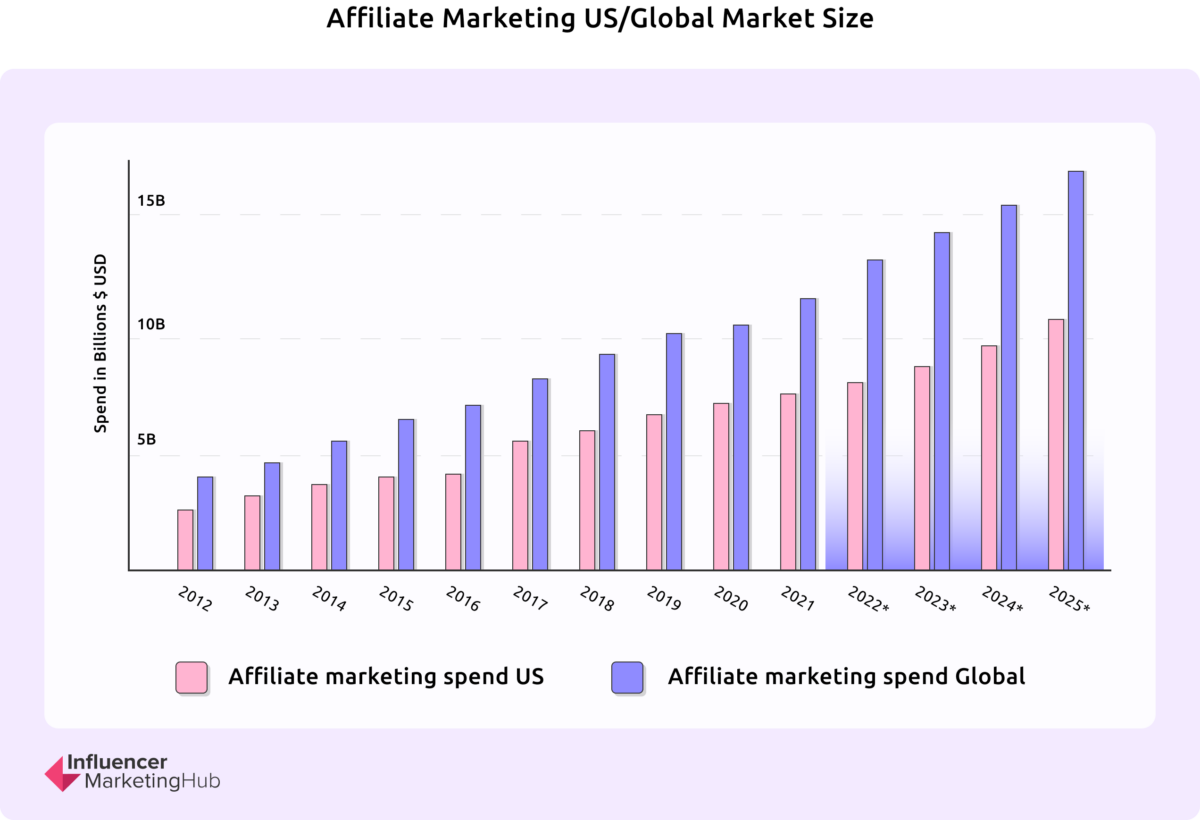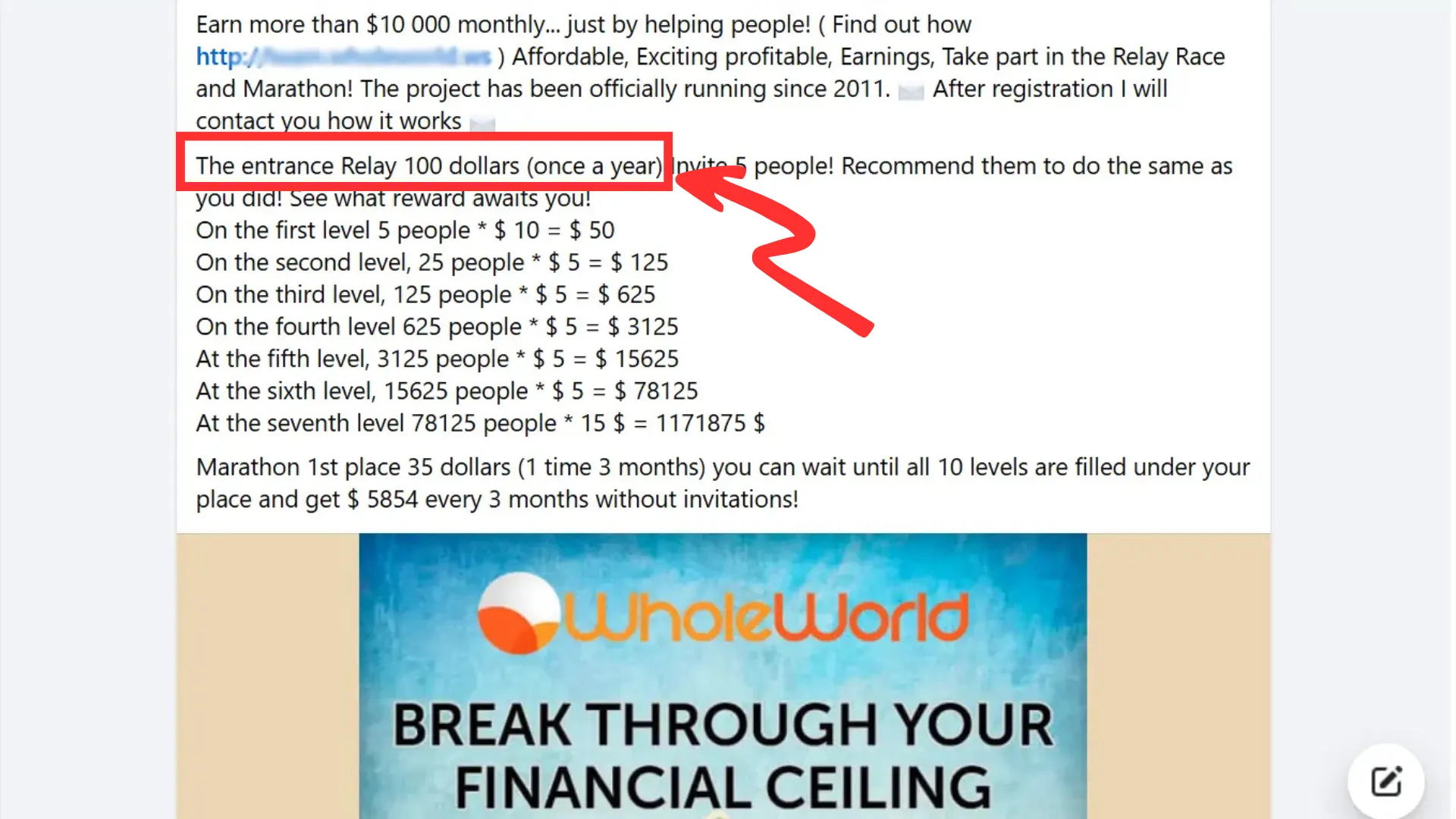Is Affiliate Marketing Legit? The Truth Behind the Business Model

Here is the big question: Is affiliate marketing legit? Affiliate marketing gets a lot of hype, but it also gets a lot of doubt. Some people swear by it, claiming it’s a goldmine. Others say it’s just another scam designed to trap hopefuls into wasting time and money.
So, what’s the truth?
Here’s my honest take. After years in the industry, I can say yes—affiliate marketing is a legitimate way to make money online, but it’s not magic. I know it might seem simple, but it’s not as easy as it sounds. It’s a business model, and like any business, it takes effort, strategy, and patience.
The big problem is that too many people expect overnight success. They jump in, post a few links, and when nothing happens, they call it a scam.
Then, you’ve got the bad actors—fake gurus promising “easy money” with little work. That nonsense has given affiliate marketing a shady reputation. But the reality is different. Done right, it’s a real, sustainable way to earn.
In this article, I’ll break it all down. My honest explanations. No wild promises. Just the facts. By the end, you’ll know exactly how affiliate marketing works, why people question it, and whether it’s worth your time. Let’s get into it.
Key Takeaways
- Affiliate marketing is 100% legit but not a shortcut to easy money.
- It’s not a scam or pyramid scheme—you earn commissions by promoting real products.
- Success takes time, effort, and strategy, not luck or overnight hacks.
- Scammers hurt its reputation, but real marketers build long-term businesses.
- Choosing the right niche, creating great content, and driving traffic are key to making money.
- Most beginners fail by expecting quick results instead of staying consistent.
- Affiliate marketing can be profitable, but only if you treat it like a real business.
What Is Affiliate Marketing? Let’s Break It Down
Affiliate marketing is simple. You recommend a product, someone buys through your link, and you earn a commission. That’s it. There is no need to create a product, deal with shipping, or handle customer support. Your job is to connect the right people with the right products.

Here’s how it works:
- You join an affiliate program (Amazon Associates, ClickBank, ShareASale, CJ and many others).
- You get a special link that tracks sales back to you.
- You promote that link—through a blog, social media, YouTube, email, whatever works for you.
- When someone clicks and buys, you get paid.
It’s like being a middleman, but online. Companies love it because they only pay when they get results. You love it because you can earn from anywhere. And with the right strategy, it can turn into real, long-term income.
Some of the biggest brands have affiliate programs. Amazon lets you earn a small cut from anything people buy after clicking your link. ClickBank is full of digital products with high commissions. Other programs, like Bluehost or Shopify, pay hundreds per referral.
But here’s the key—affiliate marketing isn’t just about throwing links around. The best affiliates build trust, create helpful content, and recommend things they actually believe in. That’s where the real money is.
Recommended reading: How to Earn Your First Dollar in Affiliate Marketing
Why Do People Question Its Legitimacy?
Affiliate marketing has a reputation problem, and I get why. Everywhere you look, someone’s calling it a scam. Others say it’s a pyramid scheme. And then there’s the biggest question of all—”Do people actually make money with it?”
“Is It a Scam?”
No, affiliate marketing itself isn’t a scam. But plenty of scammers use the term to sell garbage courses and fake “done-for-you” systems. They promise quick cash with little effort, then leave people broke and frustrated. That’s not real affiliate marketing. The legit version is about promoting products, earning commissions, and actually providing value. It takes work, but it’s a real business.
For instance, when I was starting, I remember joining a certain “affiliate marketing” group, expecting to find useful tips, success stories, and real strategies from experienced marketers. Instead, I walked into a spam fest.
The posts had nothing to do with affiliate marketing. Instead of discussions on SEO, traffic generation, or email marketing, it was flooded with flashy scam links. Every other post was some so-called “crypto guru” and some sort of pyramid scheme promising instant riches (like the one I have shown below). “Invest $100, make $10,000 overnight!” they claimed—classic scams.

No real conversations, no value, just a chaotic mess of spam and deception. It didn’t take long to realize that this wasn’t a marketing group—it was a hunting ground for scammers preying on desperate people looking for easy money.
I left that group disappointed but not surprised. This is exactly why affiliate marketing gets a bad name.
Scammers hijack the term, spamming fake “opportunities” that have nothing to do with real affiliate marketing. People join these groups expecting to learn how to build a legitimate business, only to be bombarded with shady investment schemes and empty promises.
The worst part? Those who fall for these scams end up believing affiliate marketing itself is a scam. They never see the real side of it—the one that requires actual work, strategy, and patience.
Affiliate marketing isn’t the problem. The problem is the scammers who use its name to deceive people.
“Is It a Pyramid Scheme?”
Nope. Pyramid schemes make money by recruiting people who recruit more people, with no real product involved. Affiliate marketing is different.
You don’t make money by recruiting others—you earn commissions by selling actual products or services. Big brands like Amazon, Nike, and Shopify all run affiliate programs. Last I checked, they’re not running pyramid schemes.
“Do People Really Make Money?”
Yes, but not everyone. The ones who treat it like a real business—learning SEO, creating solid content, and choosing the right offers—see results. The ones who expect to slap a few links on social media and get rich? They quit fast.
The Problem? The Get-Rich-Quick Crowd
Affiliate marketing gets a bad rap because of the “make $10,000 in 30 days” crowd. They flood YouTube with flashy cars and fake earnings, convincing people it’s easy money. Then, when reality hits and it doesn’t work overnight, those same people call it a scam.
The truth is, that affiliate marketing is legit, but it’s not a shortcut. Like any business, it rewards those who put in the effort.
How Affiliate Marketing Actually Works
Forget the hype on social media. Affiliate marketing isn’t about spamming links or getting rich overnight. It’s a real business, and like any business, it follows a process. Let me break it down.
1. Finding a Niche
You can’t just promote random products and expect success. You need a niche—a focused topic that people care about. Ideally, it’s something you’re interested in or have knowledge of. Why? Because creating content will be easier, and you’ll stick with it.
Recommended reading: How to Choose the Best Niche for Your Affiliate Marketing Business
2. Creating Valuable Content
No one buys from random links. People buy from people they trust. That trust comes from helpful content—reviews, tutorials, comparisons, or guides. The goal is to help, not just sell. If your content solves a problem, clicks (and commissions) will follow.
Recommended reading: Why Valuable Content Wins in Affiliate Marketing (And How to Create It)
3. Generating Traffic
Great content is useless if no one sees it. You need traffic. That can come from SEO (ranking on Google), social media, email lists, or even YouTube. The key is to be consistent. A website with 50 solid articles will always outperform one with five half-baked ones.
Recommended reading: Best 15 Ways to Drive Traffic to Your Affiliate Links (Tested and Proven)
4. Earning Commissions
Now comes the fun part—getting paid. When someone clicks your affiliate link and makes a purchase, you earn a commission. The amount varies by program, but the formula stays the same: More targeted traffic = more clicks = more commissions.
Success Takes Time
Affiliate marketing works, but not overnight. You won’t make thousands in your first month (unless you already have an audience). It takes time, effort, and strategy. But if you stick with it, learn what works, and keep improving, the results will come.
Proof That Affiliate Marketing Is Legit
Are you still skeptical? I get it. There are scammers out there who promise overnight success, and that gives affiliate marketing a bad name (like those on Facebook groups). But the truth is that this industry is massive, and plenty of people—real people—make a solid income from it.
1. Successful Affiliate Marketers
Let’s start with some real examples. Pat Flynn from Smart Passive Income built a six-figure business through affiliate marketing. Michelle Schroeder-Gardner from Making Sense of Cents earned over $100,000 in a single month. And there are countless others—bloggers, YouTubers, and even small niche site owners—pulling in steady income by recommending products they believe in.
2. The Numbers Don’t Lie
Affiliate marketing isn’t some underground side hustle. It’s a $17+ billion industry. More than 80% of brands run affiliate programs. That means, companies spend billions every year on affiliate partnerships because they work. Instead of burning cash on ads, brands pay affiliates only when a sale happens. That’s a win-win for everyone.

3. Big Brands Run Affiliate Programs
If you’re still not convinced enough, look at Amazon, Walmart, Nike, and even Apple, all have affiliate programs. These companies wouldn’t invest in something shady. If affiliate marketing were a scam, Fortune 500 brands wouldn’t be using it to drive sales.
Affiliate marketing is as real as it gets. But like any business, success takes work. If you treat it like a side hustle, it’ll pay like one. If you treat it like a business, the rewards are there.
How to Avoid Scams in Affiliate Marketing
Affiliate marketing is legit, but scams are everywhere. The internet is full of people selling fake success stories, pushing junk programs, and preying on beginners. If you’re not careful, you’ll waste time and money on nonsense. Here’s what to watch for.
1. Pay-to-Join Schemes
If someone tells you to “pay to become an affiliate,” run. Real affiliate programs don’t charge fees. You sign up, promote a product, and earn commissions—simple as that. The moment a program asks for money upfront, it’s likely a scam.
As you can see in the image below, you are required to pay $100 upfront to join the scheme

2. “Guaranteed Income” Promises
No one can guarantee you’ll make money. Not me, not a guru, not a so-called “expert” selling a $997 blueprint. Affiliate marketing is a business, not a magic trick. You earn based on effort, strategy, and persistence—nothing is guaranteed.
3. Fake Training Programs
Courses and mentorships can be valuable, but plenty of junk ones exist. Watch out for courses that promise instant success, flash fake earnings screenshots, or pressure you into high-ticket upsells. A good rule: If a course teaches more hype than strategy, it’s not worth it.
4. How to Choose Legitimate Affiliate Programs
Stick with trusted companies. Amazon Associates, ShareASale, and Impact are real. If a program looks shady—no clear refund policy, aggressive sales tactics, or a history of complaints—skip it. Also, check if they actually sell a good product. If the product is junk, promoting it will ruin your credibility.
Affiliate marketing isn’t the problem. Scammers are. Learn to spot the red flags, do your research, and focus on real opportunities. If something feels off, trust your gut.
Pros and Cons of Affiliate Marketing
Like any other business, affiliate marketing has its ups and downs. It’s not a magic money machine, but it’s also not a waste of time—if you do it right. Let’s look at both sides.
|
Pros |
Cons |
|---|---|
|
Low Startup Costs – You don’t need a warehouse, employees, or a huge budget. A domain, hosting, and some time—that’s your main investment. (I actually started affiliate marketing with just $34). |
Takes Time to See Results – Don’t expect quick money. It can take months (even a year) before you make real income. Consistency is key. |
|
Passive Income Potential – Do the work once, and it can keep paying you. A well-ranked blog post or video can bring commissions for years. |
Lots of Competition – Many niches are crowded. To stand out, you need better content, smarter strategies, and a unique voice. |
|
Flexibility – You set your schedule. Work from home, a coffee shop, or while traveling. No boss, no fixed hours—just your own goals. |
Algorithm Changes Can Hurt You – Google updates, social media shifts—one change can tank your traffic. You can’t rely on one platform. Diversify. |
|
No Product Hassles – No need to create, store, or ship anything. You promote products from established brands, and they handle everything else. |
No Guaranteed Income – Unlike a job, there’s no steady paycheck. Some months are great, some are slow. You have to plan for ups and downs. |
Affiliate marketing is real work. If you’re patient, strategic, and willing to learn, the rewards can be worth it.
Recommended reading: Top 9 Affiliate Marketing Mistakes New Marketers Make and How to Avoid Them
Final Verdict: Is Affiliate Marketing Legit?
Yes, affiliate marketing is 100% legit. But let’s be real—it’s not some magic money machine.
The idea is simple: You promote products, drive traffic, and earn commissions. It’s a business, just like any other. Some people crush it and make six or seven figures. Others never see a dime because they treat it like a lottery ticket instead of a real job.
Success comes down to strategy, consistency, and ethical practices. If you spam low-quality content or chase every “hot” trend, you’ll burn out. But if you pick a niche, create solid content, and stay patient, you can build something profitable and sustainable.
So, is it legit? Yes. But it rewards hard work, not shortcuts.
Thinking about starting affiliate marketing but unsure where to begin? Don’t waste time on trial and error. Get expert guidance with my affiliate marketing consultation. I’ll help you build a real, sustainable business with proven strategies.
Ready to get started? Book a consultation today.
Have you tried affiliate marketing before? Drop a comment below and share your experience!
Frequently Asked Questions
Is affiliate marketing a scam?
No, affiliate marketing is a legitimate way to earn money by promoting products. The problem is, scammers push fake “done-for-you” systems that promise overnight riches. Real affiliate marketing takes effort, strategy, and consistency.
Is affiliate marketing a pyramid scheme?
No. Pyramid schemes rely on recruiting people with no real product or service being sold. Affiliate marketing is about earning commissions by recommending real products from companies like Amazon, Shopify, or independent brands.
Can you really make money with affiliate marketing?
Yes, but it’s not instant. Some people make a few hundred dollars a month, while others build six-figure businesses. Success depends on your niche, content, traffic, and how well you connect with your audience.
How long does it take to see results in affiliate marketing?
Usually 3-6 months but it may vary depending on several factors. Some see commissions in a few months, while others take a year or more. It depends on how much effort you put into content creation, SEO, and audience-building.
What’s the biggest mistake beginners make in affiliate marketing?
Chasing quick money. Many jump from one program to another, expecting instant results. The key is choosing a niche, creating valuable content, and staying consistent.






